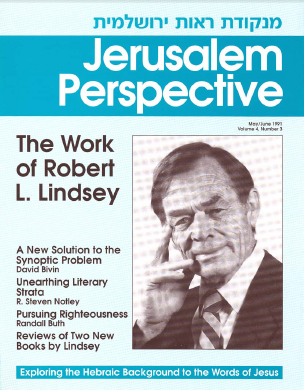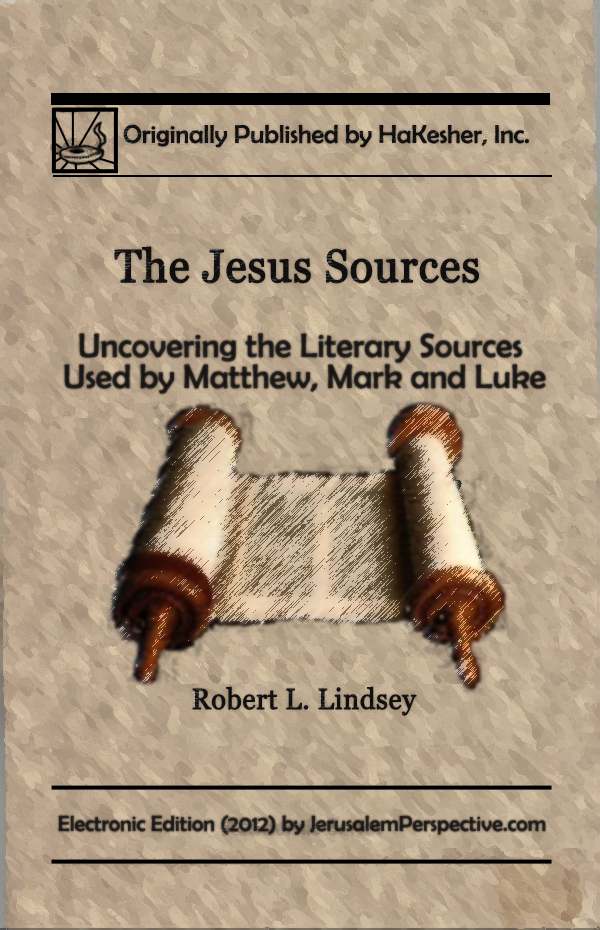JP has re-released Robert L. Lindsey’s The Jesus Sources as an Electronic Book (pdf format)! To purchase a copy, click here!
In the winter of 1982-1983, Robert Lindsey delivered a series of lectures in Jerusalem. These lectures were recorded and transcribed by Walli Callaway, edited by James Burnham and published as The Lindsey Lectures. Lindsey reedited the lectures in the spring of 1990, adding new material, and they were published that summer as The Jesus Sources.
In this book Lindsey presents four keys to understanding the synoptic Gospels: 1) the influence of Hebrew on the Greek of the Gospels; 2) the interrelationship of Matthew, Mark and Luke; 3) the two sources of Luke; and 4) the restoration of longer story units which have been dislocated in transmission. Many passages are addressed and a wide variety of topics discussed to illustrate these keys and substantiate Lindsey’s claims about them.
Lindsey’s treatment of “righteousness,” δικαιοσύνη (dikaiosyne) in Greek and צְדָקָה (tsedakah) in Hebrew, is particularly informative. He states that “Jesus uses the word ‘righteousness’ in the sense of ‘redemption'” (p. 15). For Lindsey, the highly Hebraic manner in which dikaiosyne is employed in the synoptic Gospels is a strong indication of just how literally these texts were translated, and therefore, how dependable and authentic they are.
The final chapters of the book deal with Lindsey’s favorite topic—the Kingdom of God. The first of these is about how Jesus speaks of the Kingdom: he either describes it as the supernatural penetration of the divine into our physical realm, or those people who are participating in God’s redemptive movement. Lindsey argues that for Jesus the Kingdom of God was not a future phenomenon, but a present reality among his followers.
The following chapter discusses a redacted usage of the expression “Kingdom of God” which appears in the synoptic Gospels. This secondary usage equates the Kingdom with Jesus’ return at the end of this age. Lindsey explains, “Failure to recognize that this is not an original way in which Jesus spoke of the kingdom of God has been at the root of the error of seeing the kingdom as mainly future” (p. 67). Lindsey offers a fascinating survey of the passages pertinent to this subject.
In The Jesus Sources Lindsey deals with a number of topics not mentioned elsewhere in his works. He supports his arguments with copious examples from the Greek, presenting them in a clear and uncomplicated manner. For those already familiar with his research, fresh material is to be found, and for those who are not acquainted with Lindsey’s views, The Jesus Sources would serve well as an introduction.

































































































